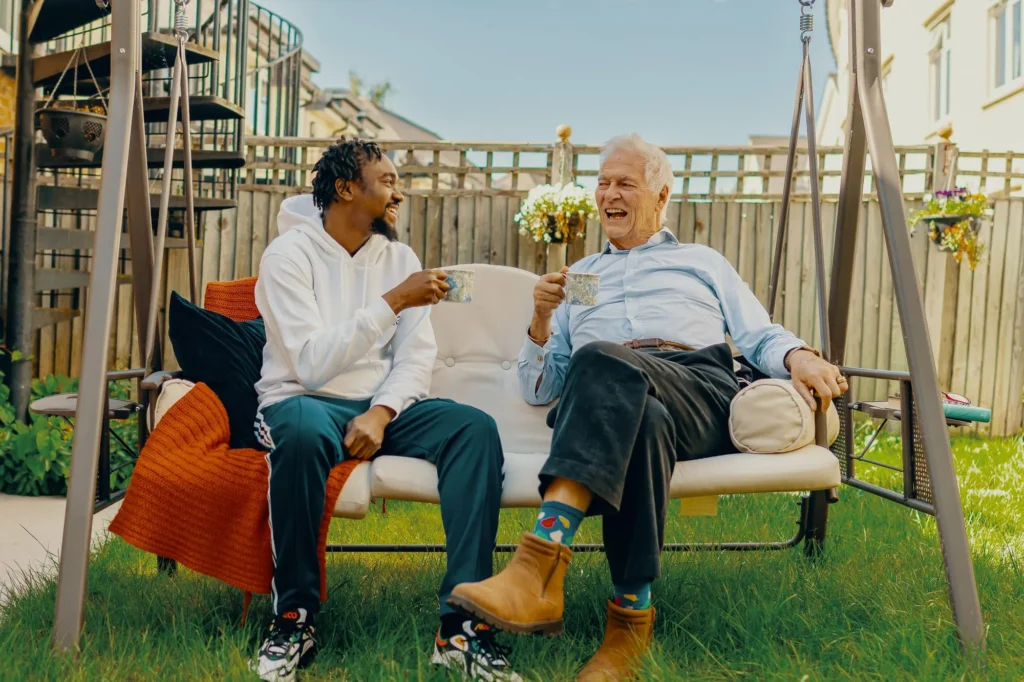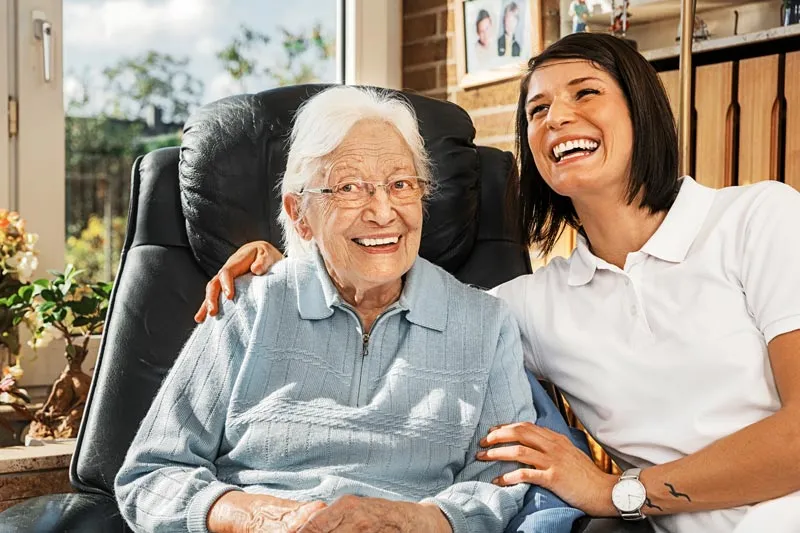Introduction
The world is getting older — and fast. The United Nations projects that by 2050, one in six people will be over the age of 65. As life expectancy increases and traditional family caregiving structures shift, older adults face a new challenge: staying socially connected and practically supported without moving into an institution. Enter Freelance Elder Companions — independent professionals who provide non-medical, relationship-focused assistance for older adults wishing to age at home.
Unlike nurses or home-health aides, Freelance Elder Companions concentrate on companionship, conversation, and light daily assistance. They act as the bridge between clinical care and family involvement, helping seniors avoid isolation, maintain independence, and preserve dignity.
In 2025, this role has moved from being a quiet niche to a recognised freelance path — one that offers flexibility, meaningful impact, and solid earning potential for people with empathy, patience, and organisational skills.

1. ? What is a Freelance Elder Companion?
A Freelance Elder Companion is a self-employed care provider who focuses on the emotional, social, and day-to-day needs of older adults rather than their medical requirements. Services typically include:
- Social engagement: sharing meals, engaging in conversation, playing games, reading aloud, or accompanying clients to social events.
- Practical support: light housekeeping, meal preparation, scheduling appointments, and transportation.
- Wellness encouragement: gentle exercise, walks, or stretching routines appropriate for the client’s abilities.
- Administrative help: reminders for medications (without administering them), mail sorting, and bill reminders.
Unlike institutional carers, Freelance Elder Companions can tailor services entirely to the client’s personality and preferences. This flexibility makes them especially appealing to families who value one-on-one attention.
2. ? Why demand is growing for Freelance Elder Companions
Several intersecting forces are driving demand:
- Demographic change: The elderly population is growing faster than the younger workforce that traditionally provides care.
- Healthcare pressures: Hospitals and care facilities are under strain, encouraging governments and families to support “aging in place.”
- Loneliness epidemic: Studies link isolation to increased mortality risk among seniors. Companionship is now seen as a health intervention.
- Cultural shifts: Families may live far apart, especially in globalised economies, making professional companionship a necessity rather than a luxury.
According to industry reports, the global elderly care market continues to expand, with non-medical home care making up an ever-larger slice of the sector. This trend positions Freelance Elder Companions as a growth profession in both developed and emerging markets.
3. ?️ Key services and skills Freelance Elder Companions offer
Soft skills:
- Active listening and empathy to truly connecting with clients.
- Patience, especially important when working with individuals with memory loss.
- Cultural sensitivity for diverse clients.
Practical skills:
- Familiarity with safe mobility techniques.
- Ability to prepare nutritious, simple meals.
- Confidence in using (and teaching) basic technology — video calls, messaging apps, or online grocery orders.
Example: A companion might help a retired teacher scan old photographs and create a digital album, blending conversation with a purposeful activity.
4. ? Legal, safety, and background checks for Freelance Elder Companions
Working with vulnerable individuals comes with legal and ethical responsibilities.
Best practices include:
- Background checks: National criminal record checks, abuse registry checks, and reference verification.
- Insurance: Public liability and professional indemnity insurance.
- Data privacy compliance: Understanding how to handle personal information securely, especially if you keep client notes or contact information digitally.
In some countries, care workers must also complete safeguarding training before working independently.

5. ? Pricing, earning potential, and business models for Freelance Elder Companions
Rates vary, but in many urban markets, companions earn between $18 and $40 per hour, depending on experience and location. Premium rates are possible for specialised services such as dementia companionship or overnight stays.
Business model examples:
- Solo freelancer: Manage all clients personally for maximum control.
- Platform-based: Join vetted care marketplaces for steady leads.
- Micro-agency: Recruit other companions, taking a management fee.
Tip: Packaging services (e.g., “10 hours per week” contracts) create predictable income and help clients budget.
6. ? How Freelance Elder Companions Find Clients
Online:
- Care-specific platforms (e.g., Care.com).
- Local Facebook groups and neighbourhood apps.
- LinkedIn for professional networking.
Offline:
- Partnerships with geriatricians, social workers, and physiotherapists.
- Flyers in community centres, libraries, and religious institutions.
- Hosting free workshops on “Staying Social in Later Life” to attract both clients and their families.
7. ? Branding, contracts, and professional standards
To stand out, create a clear brand identity that communicates warmth, reliability, and professionalism. Use real client testimonials (with permission) and high-quality photographs.
A service agreement should include:
- Duties and exclusions.
- Payment terms and cancellation policy.
- Confidentiality clauses.
- Emergency contacts and escalation steps.
8. ? Training and career progression
Training in CPR, first aid, and dementia awareness boosts credibility. Many companions also take short courses in nutrition for seniors, fall prevention, or mental health first aid.
Career progression can lead to:
- Specialising in niche companionship, e.g., for Parkinson’s patients.
- Becoming a care coordinator or trainer for other companions.
- Expanding into related services like senior travel assistance.
9. ⚖️ Ethical considerations and boundaries
Boundaries keep the relationship professional:
- Never handle large sums of client money without explicit consent and legal safeguards.
- Maintain transparency if gifts are offered.
- Report suspected abuse or neglect immediately to the appropriate authority.
10. ? Global opportunities and cultural considerations
Freelance Elder Companions can thrive in expatriate-heavy regions, retirement hotspots, and countries with fast-aging populations like Japan, Italy, and Canada. Cultural adaptation — from dietary habits to social customs — strengthens client relationships.
Example: A bilingual companion in Dubai might alternate between Arabic and English conversations, helping clients feel both understood and engaged.

Conclusion
In an aging world, Freelance Elder Companions represent more than a job — they are a bridge between independence and institutional care, a safeguard against loneliness, and a lifeline for families balancing work and caregiving responsibilities. In 2025, with the right training, legal preparation, and marketing, this path offers both social impact and financial stability. As demand grows, those who combine professionalism with genuine compassion will find themselves not just meeting a market need but enriching lives in profound ways.
External Links
- Care.com — Companion care overview
- SeniorLiving.org — Companion care guide
- Fortune Business Insights — Elderly care market report
- U.S. Bureau of Labor Statistics — Home health and personal care aides outlook
Also Read: Freelance Plumbers: How to Promote Your Services Online — A Modern, Practical Guide(2025)

